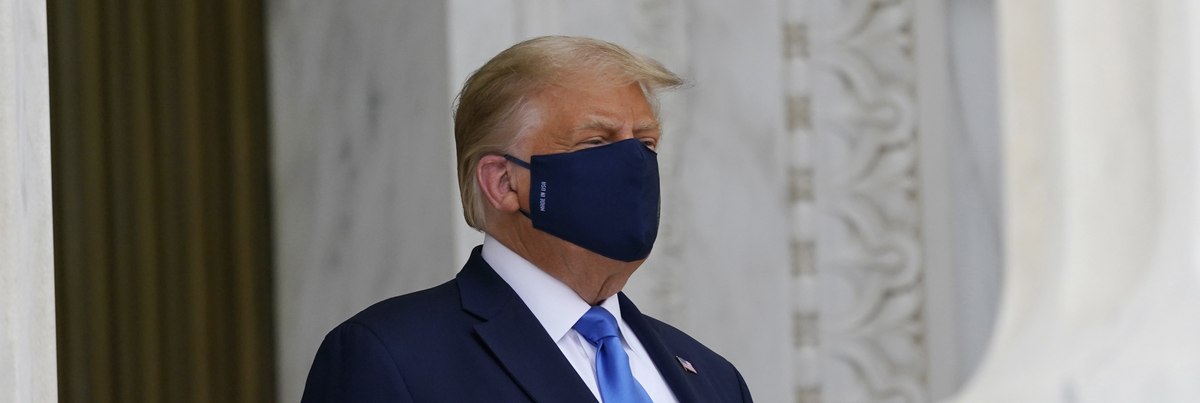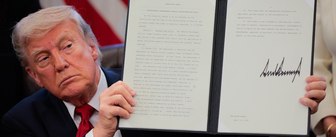President Donald Trump announced via Twitter late last night that he and the First Lady, Melania Trump, have both tested positive for COVID-19.
A YouGov snap poll conducted this morning finds that nearly all registered voters (92%) had heard at least a little about the news.
There are many questions about what President Trump’s diagnosis will mean for his campaign, just 31 days out from the election. Some are wondering if the upcoming presidential debate on October 15 should – or will – happen as scheduled.
One-quarter (25%) of registered voters say the debate should happen in-person, but a near-equal number (26%) say it should be canceled altogether. A plurality (40%) of voters say that the debate should still happen, but over video/phone rather than in-person.
As with most topics, Democrats and Republicans are divided. Nearly half (48%) of Republicans believe that the debate should happen in-person, while an equal number (48%) of Democrats say that the debate should happen over video or phone. More than one-third (36%) of Democrats say the debate should be canceled altogether, a position that only 14% of Republicans agree with.
Some are also speculating whether being diagnosed with COVID-19 will alter the president’s approach to the pandemic. He has generally downplayed the virus, saying as recently as last week that the coronavirus “affects virtually nobody.”
YouGov’s polling suggests that a majority (67%) of voters don’t think his personal experience is likely to alter his policy approach. Just 13% say they think his diagnosis will make him more likely to introduce stricter measures to tackle the virus. Another 7% say they think this will actually make him less likely to do so.
See results here.
Methodology: This article is based on a flash poll of 1,200 registered voters surveyed via YouGov Direct on October 2, 2020 between 9:30 a.m. and 11:12 a.m. This YouGov Direct Poll was weighted according to age, gender, race, education, and 2016 presidential vote. The margin of error is ±3.6%
Image: Getty







